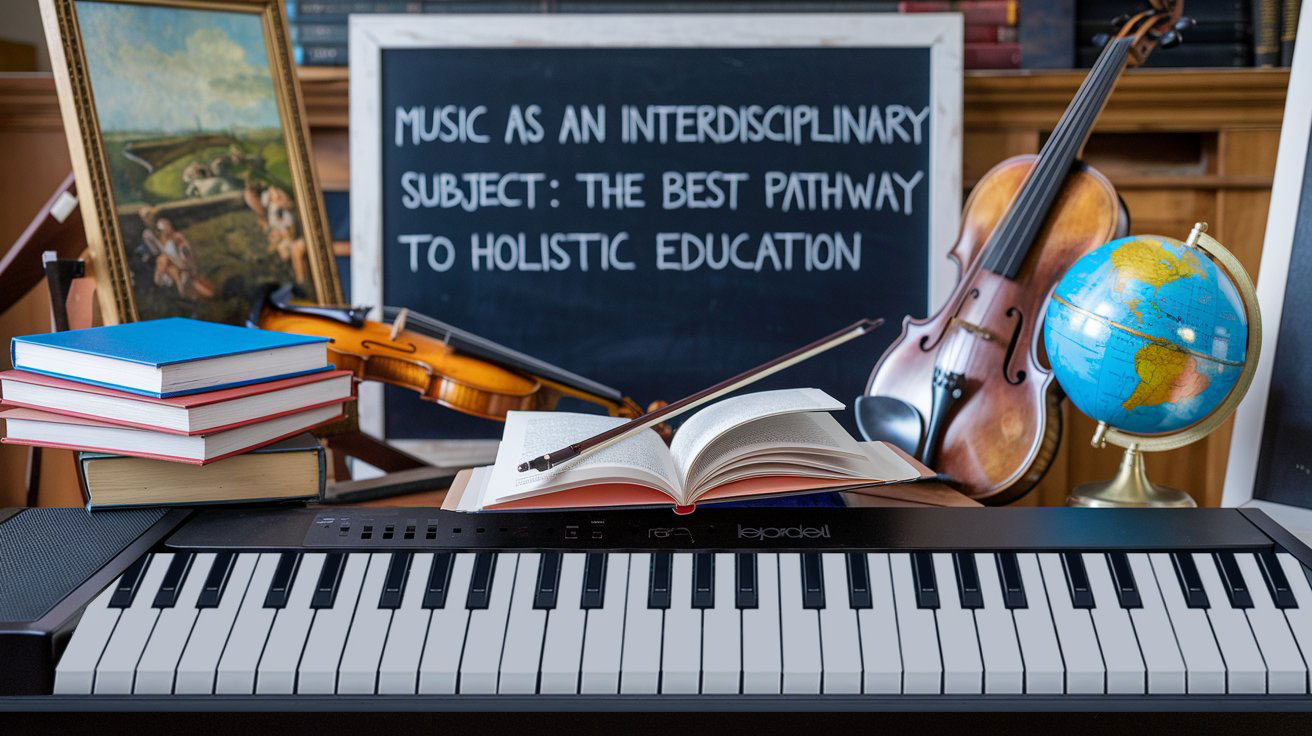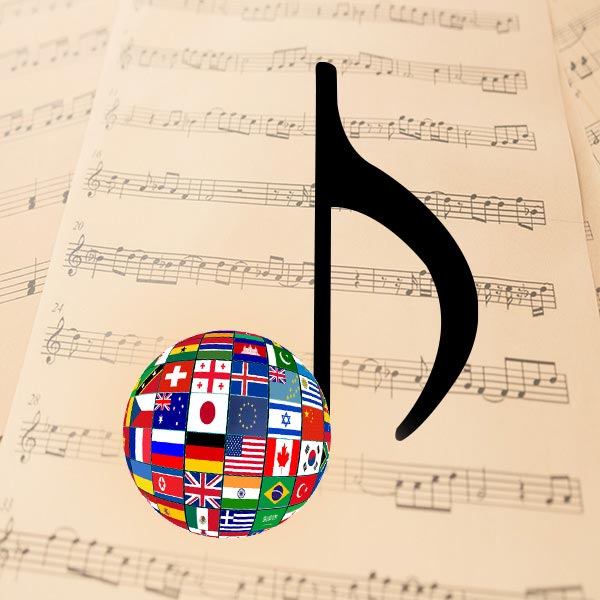MUSIC is an Interdisciplinary Subject
India’s Youth and the Power of Education
India, with one of the youngest populations in the world, stands at the threshold of unprecedented growth and development. To unlock the vast potential of its young demographic, the country needs to provide exceptional education—one that nurtures not just academic excellence but creativity, problem-solving, emotional balance, and social skills. The current educational focus on mathematics, science, and linguistics has undeniably shaped the modern world, but we are now in an era where subjects like computer science, artificial intelligence, data science, and robotics dominate global educational discourse. While billions are being spent on improving the cognitive potential of machines, we have perhaps overlooked the most powerful tool for enhancing the human brain — Music.
Why Music?
Music, as an interdisciplinary subject, offers unparalleled benefits for cognitive, emotional, and social development. Neuroscientific research reveals that music has a profound effect on the brain’s structural and functional anatomy, influencing areas such as memory, attention, language acquisition, emotional regulation, and even physiological health. As we continue to navigate the complexities of modern life—facing unpredictable changes and stresses—music stands as not only a subject of study but also a potential therapy for all.
To better understand the powerful interdisciplinary nature of music and why it deserves a central place in every child’s education, let’s explore its intersection with science, mathematics, technology, history, psychology, culture, and education.
Why We Need Music in Every School
While mathematics, science, and language are essential components of any curriculum, music deserves a central place in every school and university curriculum. Up until the middle ages, music was a compulsory subject in school and was in league with subjects like mathematics, physics, geometry and astronomy.
Music as an Interdisciplinary Subject
Music, inherently connected to a wide range of fields, is not only an art form but also a powerful interdisciplinary subject that intersects with multiple domains such as science, mathematics, technology, history, psychology, culture, and language. Its interdisciplinary nature allows for a deeper exploration of human expression, cognition, and societal development.
Music and Science
The connection between music and science is profound, especially in areas like acoustics, sound engineering, and psychoacoustics. The physics of sound waves, resonance, and frequencies help students understand concepts related to vibrations, pitch, and harmonics. Meanwhile, neuroscience reveals how music influences brain development, cognitive function, and emotional regulation. The emerging field of music therapy, which bridges music with psychology and healthcare, showcases the therapeutic effects music has on patients with neurological disorders or emotional difficulties.
Music and Mathematics
Music is intricately linked to mathematical principles. Rhythms are based on fractions, intervals relate to ratios, and musical scales rely on patterns. Composers often use symmetry, geometry, and number theory to create harmonious arrangements. Understanding these mathematical foundations allows students to develop analytical and logical thinking while engaging creatively with music.
Music and Technology
With the rise of digital tools, music has become more accessible and innovative through technology. The integration of Artificial Intelligence (AI), Machine Learning (ML), and deep learning in music learning, music composition and production opens up new possibilities for our personalized music learning platform LorraineMusic.ai. Music technology courses will also teach audio engineering, digital music production, and sound design, merging creativity with technological proficiency.
Music and History
Music serves as a reflection of cultural and historical contexts. Exploring music as an interdisciplinary subject in relation to history allows students to understand the social, political, and economic forces that shaped various musical movements and genres. From Renaissance music to Jazz and Rock, each genre offers insight into the period in which it was created, revealing much about the society’s values, struggles, and innovations.
Music and Psychology
Music has long been studied for its emotional and psychological effects. Music psychology explores how humans perceive, process, and react to music emotionally and cognitively. Research has shown that music can reduce stress, enhance mood, and even improve memory retention. Music therapy is increasingly being recognized in educational institutions and healthcare settings as a legitimate and impactful therapeutic intervention.
Music and Culture
Music is an essential part of cultural identity, serving as a medium through which traditions, rituals, and values are passed down. The study of ethnomusicology, for instance, looks at the relationship between music and culture, focusing on how different communities express their unique identities through musical forms. This interdisciplinary study allows learners to appreciate the diversity of human experiences globally.
Music and Language
Learning music and language are deeply interconnected, as both rely on the brain’s ability to process sound patterns, rhythm, and auditory discrimination. Music training enhances phonological awareness, which is the ability to recognize and manipulate sounds, a critical skill for language development. Studies show that music improves speech perception, verbal memory, and reading skills, as the neural circuits used for music processing overlap significantly with those involved in language acquisition. By engaging these shared neural pathways, music training strengthens auditory skills, making it easier for individuals to understand speech, develop vocabulary, and improve reading fluency.
Conclusion
The interdisciplinary nature of music makes it a powerful subject that cuts across different fields of study, offering students an opportunity to develop holistically. Whether in the context of science, technology, culture, or psychology, the study of music deepens our understanding of the world and contributes to multiple aspects of human development. We at LorraineMusic.ai leverage these interdisciplinary connections to offer an enriched learning experience, promoting the importance of music in education and personal growth.










